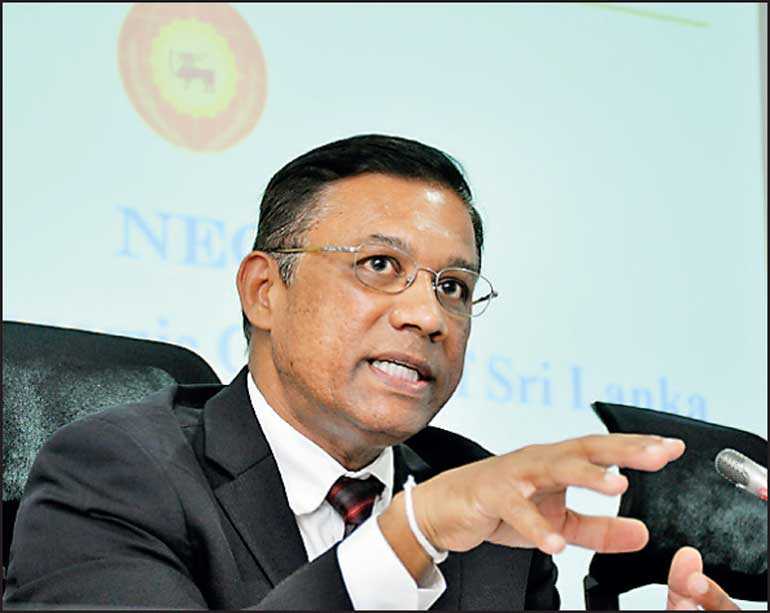Saturday Feb 21, 2026
Saturday Feb 21, 2026
Thursday, 28 February 2019 00:00 - - {{hitsCtrl.values.hits}}

By Uditha Jayasinghe
The National Economic Council (NEC) is planning to establish a regulatory authority for the microfinance industry as a long term measure to tackle rampant indebtedness.
NEC Secretary General Prof. Lalith Samarakoon told reporters yesterday that the measure was essential to address regulatory gaps in the present system that has resulted in over Rs. 160 billion in debt being accumulated through microfinance.
He noted that even though efforts had been made to regulate microfinance companies, less than 46 of them had submitted applications to be registered but reports indicate thousands are in existence. Establishment of the authority was discussed during the NEC meeting that was chaired by President Sirisena.
“About Rs. 60 billion of the debt is under registered companies. Non-performing loans have increased last year after the Government announced a debt write-off. But clearly that is not a solution, we cannot expect taxpayers to bear the burden. The authority should expand due diligence processes that are currently being done by conventional banks and the financial literary of people must also be increased. The authority will also accept complaints from people who have been trapped by unscrupulous microfinance companies,” he said.
Pointing out that the Central Bank was only empowered to regulate deposit taking microfinance companies, Prof. Samarakoon was insistent on the need to have complimentary policies that would give people alternatives to problematic microfinance companies.
“We have to acknowledge that the reason this situation has become this bad is because of overall institutional failure. Early intervention was needed but it did not happen. Therefore we need a long term approach that will ensure credit is provided in the right way. There is clearly a need to make available organisations that will give credit responsibly.”
During the NEC meetings, payment to depositors of the embattled Edirisinghe Trust Investment (ETI) non-banking financial institution had also been discussed. NEC officials also explained the steps that had been taken so far and pointed out that the NEC had focused its attention on the liquidation of the company’s assets to compensate the aggrieved depositors. The Central Bank has been monitoring the exchange with the latest round of investment expected to reach Sri Lanka today.
In the period of 2015-2018, three institutions had agreed to buy ETI, two of which are Sri Lankan companies and one is a foreign company. The NEC had focused attention on whether there was sufficient transparency during negotiations with the local companies and whether a proper bargaining was done to get a maximum sum to pay the depositors in the transaction. The Central Bank has defended the transaction insisting that the best possible oversight has been provided.
Proceeds of the already concluded $ 54 million part of the transaction was utilised to repay 20% of the depositors, amounting to Rs. 6.4 billion.
The only proposal submitted by ETIF was from Blue Summit Capital Management Ltd. (BSCM), which is a foreign entity, NEC officials said. As such, possibility of ‘permitting a local investor’ at the time of approving the said transaction does not arise. Investors who expressed their interest in this regard to CB were instructed to deal directly with ETIF, as ETIF was the owner of the assets.